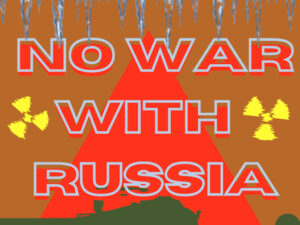Diplomacy to Address the Most Dangerous Conflicts
2024
2024

This is an incredibly dangerous time for the global community, we are at a crossroads where there lies a choice between greater cooperation and diplomacy or greater, potentially catastrophic, confrontation. The possibility of a nuclear war is being talked about as a more serious possibility than it has been since students were doing nuclear drills under their desks. A dangerous dance between two declining powers, Russia and the US, and a rising power, China, menaces prospects for global peace. All three have persistent domestic problems, while still possessing frightening arsenals capable of regional and global force projection, also known as threatening life on Earth. Competing geo-strategic and economic interests seem at a glance to be intractable, and at the current moment, an expanded war over Ukraine or military conflict over Taiwan seem all too possible. A renewed arms race and Cold War that the peoples of Russia, China and the US, and the whole world, cannot afford, is well underway, if only at a medium boil.
However, the US, China and Russia have many common interests – reducing the nuclear weapons threat, curbing violent extremism, increasing peace and stability on the Eurasian landmass and in the Pacific region, achieving a stable peace on the Korean peninsula, and addressing the climate crisis and global pandemic. Ordinary Americans, for the most part, tend to oppose more wars and support diplomatic efforts and we need to mobilize them.
For its part, the US military-industrial complex points to China’s rise to justify continued massive Pentagon budgets, exorbitant, provocative weapons systems, and a “pivot” of 60% of its military resources to the Asia-Pacific region. This siphons off resources from efforts to address the world’s real human security crises like climate change and dangerous global pandemics.
We need less saber rattling and more diplomacy, cooperation and conflict prevention. Many in the U.S. have forgotten that diplomacy is not about singing kumbaya with your adversaries, it can instead provide a smart and sophisticated tool for addressing, preventing and resolving real world conflicts – even in the toughest cases. Achieving peace and enhanced security would be much cheaper, and in the interests of everyone save weapons contractors and foreign policy elites whose only frame for international relations is constant conflict.
Especially with the war in Ukraine, the whole idea of diplomacy has been problematized by supporters of military support for Ukraine. The mere mention of diplomacy is shouted down as a way of supporting Russia’s invasion of Ukraine. Old misguided notions, like the idea that you can’t do diplomacy with countries you don’t trust, dominate debates about Ukraine. This dynamic has shrunk the political space for those supporting diplomacy to end the war as was demonstrated in the backlash to the 2022 Jayapal sign-on letter urging the Biden administration to engage in diplomacy to end the conflict. However, even that backlash allowed Peace Action and its allies to broaden and deepen the debate on diplomatic tools. Peace Action can play a critical role in media, public education, and congressional education in articulating why diplomacy is still needed and addressing all the obstacles to diplomacy. To do this we need to avoid our own simplistic formulations, and acknowledge and address the very real obstacles a negotiated solution faces. A similar preventative effort is needed to encourage the diplomacy needed to ratchet down growing tensions with China.